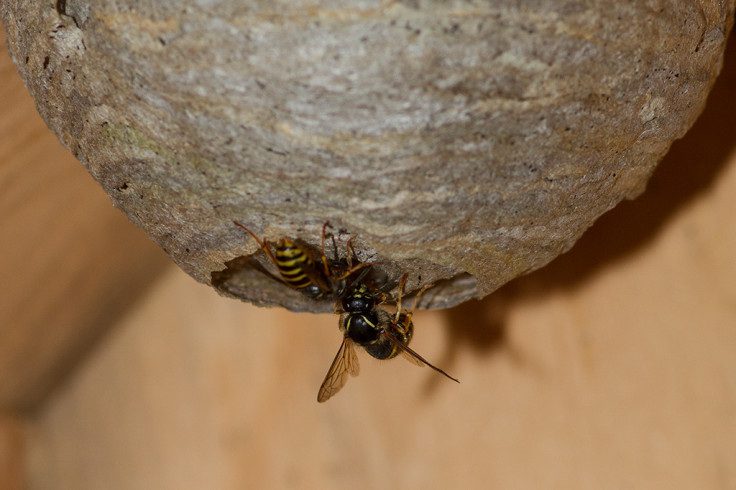Wasp plagues are set to hit UK and New Zealand as climate change brings warmer springs
Wasp populations are booming as springs become warmer and drier, a new study finds.
Climate change is already proving to be good news for wasps, as milder spring weather gives a boost to their populations in the UK and New Zealand, according to a study published in the Journal of Animal Ecology.
The analysis of 39 years of data on wasps from four sites in the UK and 23 years of data from six sites in New Zealand found that populations were behaving similarly in both countries. The wasp species studied, Vespula vulgaris, is native to the UK but was introduced to New Zealand in 1978.
"Wasps in New Zealand are a particularly big problem, much more so than in the UK," study author Chris Shortall of Rothamstead Research told IBTimes UK.
To understand what was driving booms in wasp populations in particular years, Shortall and his colleagues looked at long-term datasets on wasp populations in the UK and New Zealand and compared them with weather data. The finding goes against an established concept in the biology of invasive species.
Species such as wasps are generally expected to show different population patterns in their native habitat compared with areas where they are an invasive species. But the wasps appeared to be having the same reaction to the changing climate in both countries.
"It seems like it's not a difference between the two," Shortall said. "It's very interesting to see they are very similar in their population dynamics. A lot of invasive biology makes the assumption that species are often more abundant or fecund in an invaded range, that will have an effect on what they do year on year. This bit of research calls that into question."

The boost that climate change gives to wasps may also extend to other insect species, Shortall said. Insects such as Culicoides – or biting midges – have also benefited from warmer and drier springs. These insects are responsible for the spread of bluetongue disease in livestock.
"Warmer weather tends to be better for insects generally. But warmer winters are sometimes worse for them, because they become more prone to fungal attacks." Some insects may be negatively affected by the changing weather patterns overall, Shortall said.
"Obviously we know that these changes do have an effect and a lot of the work we've done at the Insect Survey has been looking at changes. But I wouldn't say the changes are always going to be in the same direction."
© Copyright IBTimes 2025. All rights reserved.






















